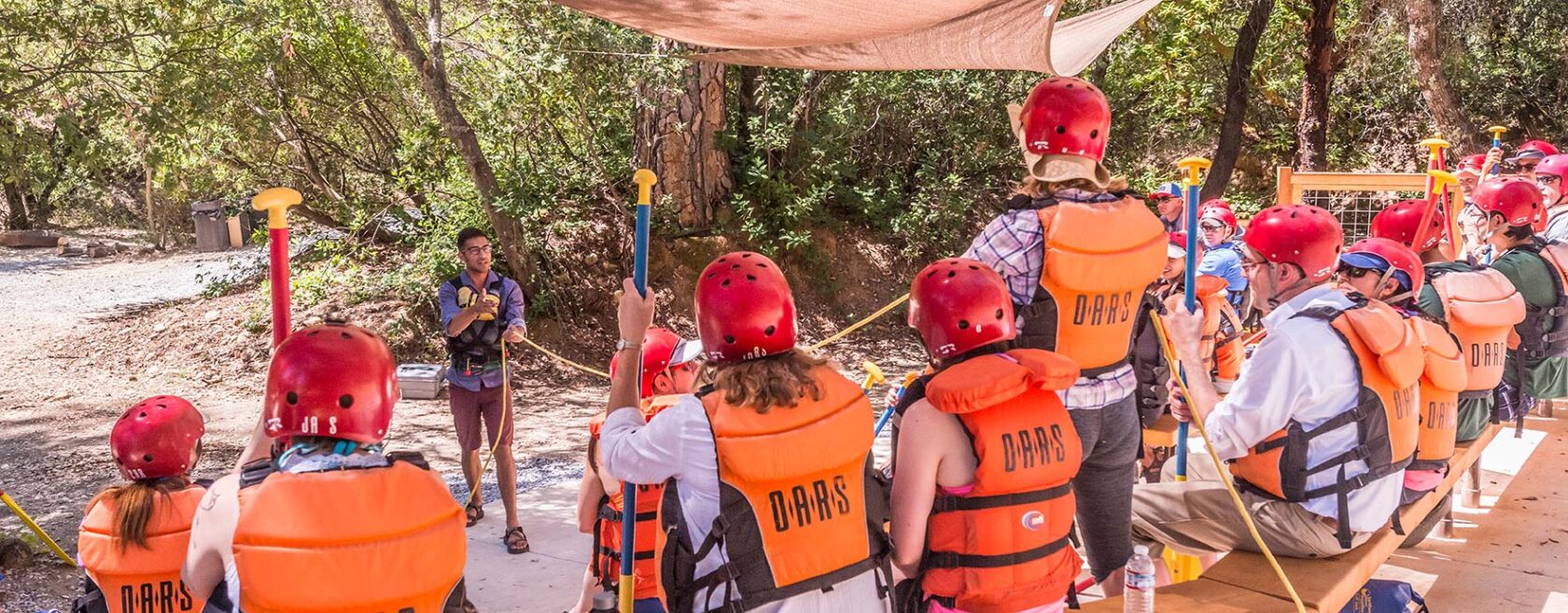
Safety & Responsibility
Whitewater Safety Orientation Video
To increase your awareness about safety considerations, we expect all our river trip guests to watch our Whitewater Safety Orientation video. For trips that offer inflatable kayaking, our orientation video and a few beginner IK tips can be found here.
River Runners’ Responsibility Code
- Read the pre-trip literature and arrive at the meeting place on time.
- Understand the risks: your safety is ultimately your responsibility.
- Treat your fellow guests and guides with respect and courtesy; harassment of any kind will not be tolerated.
- Wear clothing and personal protective equipment suitable for the current conditions.
- Listen to and follow the guides’ instructions.
- Abide by the managing agency’s rules.
- No drugs or alcohol prior to, or during, your trip; alcohol is allowed in moderation in camp on overnight trips.
- Minimize your impact on the environment.
- Wear the OARS-issued and properly–fitted Personal Flotation Device (PFD) at all times when in the boats or swimming. Wear a helmet when required.
- Your children are your responsibility!
Read Our Essential Eligibility Criteria for River Trips
Frequently Asked Questions About Safety
Will I be kept safe at all times during my OARS trip?
Because our trips take place in wild environments, there are inherent risk factors that can’t be entirely avoided without compromising the unique character of the activity. Obviously, it’s not our intention to reduce your enthusiasm for outdoor adventure activities, but we believe it is important for everyone to know in advance that real adventure involves real risk, much of which simply cannot be controlled by OARS or OARS employees. By joining one of our trips, you are representing that you understand, and are accepting of, the risks described in the acknowledgment/release document that all participants are required to sign.
What are your guides' qualifications?
Our team of highly experienced guides is passionate about rivers and sharing them with others in a supportive and informative environment. OARS is the one of the largest single employers of river guides in the world, attracting talented professionals drawn to the variety and pristine quality of the rivers we run. Many of our guides hold current Wilderness First Responder or Emergency Medical Technician certifications, and all carry at least Basic First Aid and CPR. Many are also certified in Swiftwater Rescue Techniques, and all have received formal training in whitewater navigation and risk management strategies.
What happens if I become ill or injured on the trip?
Our staff will assist you to the best of their abilities. We do our best to mitigate the risks associated with adventure travel, but incidents and injuries that require evacuation do occur from time to time. Since most OARS trips take place in remote wilderness locations, evacuations can be prolonged, difficult and expensive. As such, emergency medical personnel and hospital facilities may be distant or not available. It is your responsibility to carry insurance, or be prepared to cover the cost yourself, for expenses related to emergency medical evacuation.
What river safety equipment does OARS provide?
All trips travel with a well-stocked first aid kit and a plan for initiating an evacuation if necessary. All of our U.S.-based multi-day wilderness expeditions carry a satellite phone for use in an emergency. River-related safety equipment includes Personal Flotation Devices (PFDs) and helmets for each passenger along with throw ropes, a whitewater wrap kit, spare paddles and oars, air pump, and a boat repair kit.
What are the chances I will become a "non-voluntary" swimmer on my river trip?
Naturally, the odds of going for a “swim” will vary depending on the trip you choose. The reality is that a person must be prepared for the possibility that they will become a whitewater swimmer on any of our river-based adventures, with the odds increasing along with the river’s whitewater rating. Boats can flip over or “wrap” on obstacles in the current, or you can fall out when your boat bumps a rock or sticks on a gravel bar. High water, which occurs due to snowmelt in the springtime or water releases from upstream reservoirs, generally increases the probability of one of our boats to go upside down in a rapid. Joining a trip with a class IV or V whitewater rating represents a choice to embrace relatively high odds for an out-of-boat experience!